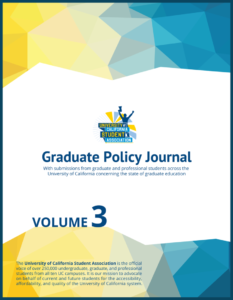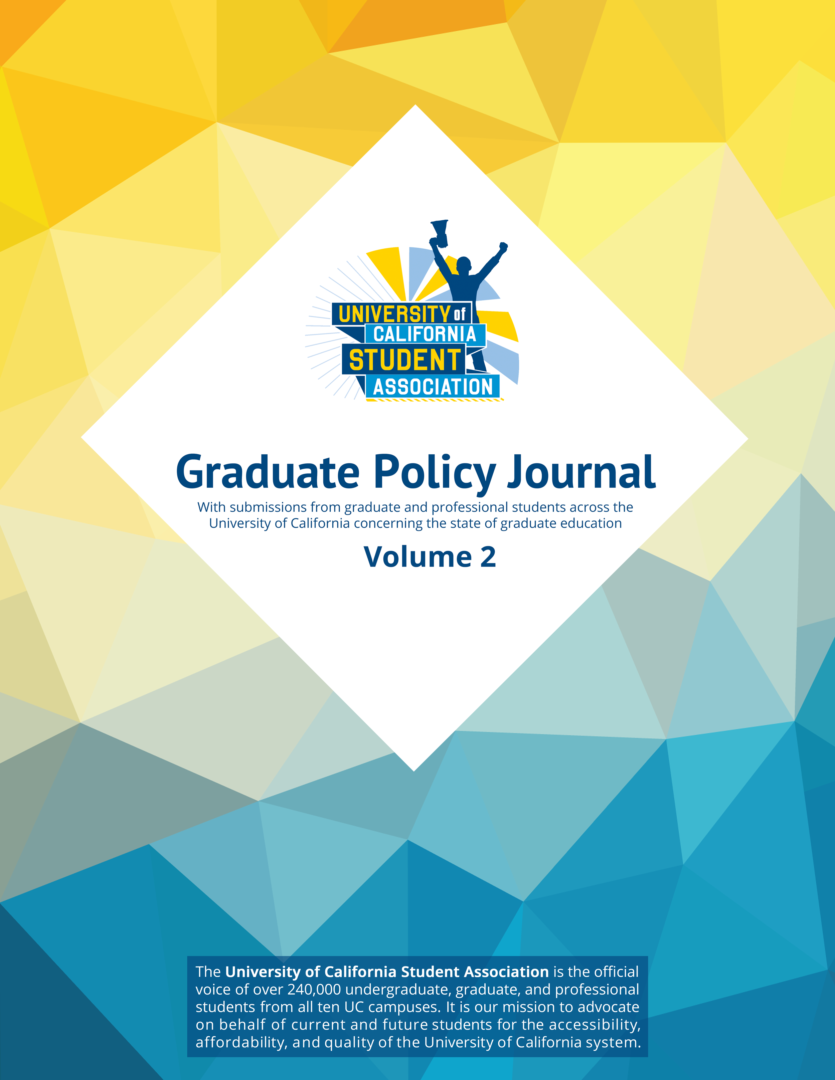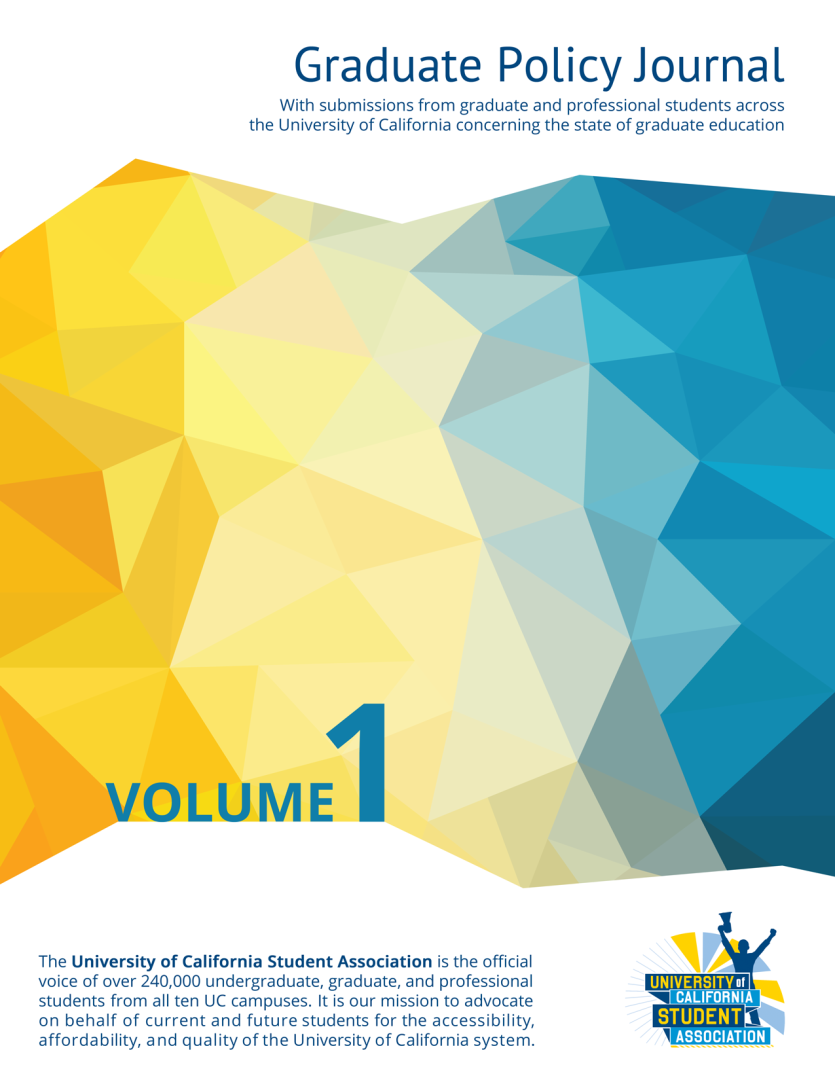Introduction by Jamin Shih, Lead Editor:
This is the third issue of the University of California Student Association’s (UCSA) Graduate Policy Journal, a journal which highlights the concerns graduate and professional students have with the institution of graduate education, its academic and administrative structures, and their impacts on the well-being and success of graduate and professional students. It has been an absolute honor and privilege to be involved with the process of editing this journal and continuing the conversations it invites.
The seven articles published this year demonstrate not only the intellectual rigor and creative problem-solving that graduate and professional students across the University of California system display; they contradict the misconception that graduate students are or ought to be apolitical by nature. Their keen insights on the institution of graduate education help to reveal how its structures are inextricably tied to systems of inequality, whether through race, class, gender, or the myriad intersections of these and other social axes. Far from being complacent with the way graduate education is, these articles push for a vision of what graduate education could be—radical, cutting-edge, inclusive, and equitable. In our current political time, it is even more necessary to lift up the voices of the marginalized and work towards creating the spaces we all deserve in the institutions we inhabit.
It is to this work that we now turn. Many of our articles focus on the need to prioritize the well-being and health, physical and mental, of graduate and professional students. Green and Ellison demonstrate the need for collective bargaining rights for Research Assistants (RAs) and the hazardous or unsafe working environments RAs find themselves in. Oyewole details the effects and prevalence of anti-black and racist discrimination in mentorship and advising that necessitate overhauls in the structure of graduate institutions. Barton provides a history of graduate student organizing that led to the establishment of the Graduate Cultural Resource Center that is faced by administrative backlash and environmental racism. Several of our articles also center on the lived experiences of underrepresented graduate and professional students, particularly women of color. Le lay and Paez offer first-hand experiences as womxn leaders in graduate advocacy and provide a much-needed forum to push these conversations forward. Cobian advocates for improved campus climate for women of color in the sciences and pushes us to recognize the oft-overlooked contributions of women of color scholars. Finally, our articles identify trends in academia that need evaluating. Oakley and Kirksey synthesize recommendations for student advocates and leaders on best practices in organizing for institutional changes. Gelgoot analyzes the growth of online charter education, its consequences, and offers recommendations for innovations to the online charter model.
Together, this issue seeks to push the boundaries of graduate education and participate in shaping its future. As such, I am thrilled to invite you to join the conversation. Thank you to UCSA, the Graduate Professional Committee, and Anaïs Lieu for making this journal possible. And thank you to all the authors and editors of this issue and the graduate and professional students across the UC system.


